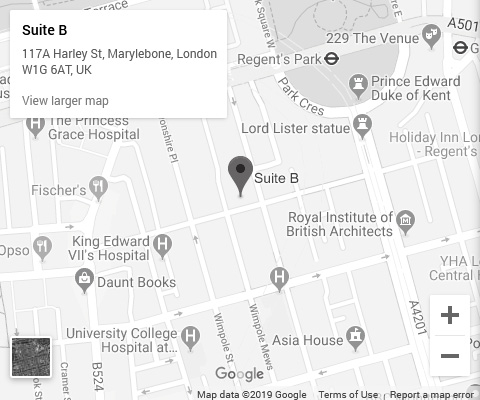
It's a fact we'd all rather not think about, but ovarian cancer is a reality for thousands of women across the UK every year. It's one of the most common gynaecological cancers, and while those words might sound scary, there's a crucial piece of information that can make all the difference: early detection is a game-changer. In fact, when caught early, the survival rate increases significantly. That's why being aware of your body and the subtle whispers it sends is so important. Whether you rely on the incredible or choose a private route, knowing what to look out for is the first and most powerful step you can take. This isn't about panicking; it's about being informed and empowered.
Understanding Ovarian Cancer
So, what exactly is ovarian cancer? Simply put, it's a type of cancer that begins in the ovaries, the two small organs on either side of the uterus that produce eggs and female hormones. It often develops when abnormal cells in the ovaries begin to grow and divide uncontrollably. These cells can then form a tumour and, if left untreated, can spread to other parts of the body.
The statistics can be sobering, but they also underscore the need for awareness. In the UK, around 7,500 women are diagnosed with ovarian cancer each year. While it can affect women of all ages, it's most common in those over 50.
Several factors can increase a woman's risk. The most significant are age and a family history of ovarian, breast, or bowel cancer. Genetic mutations, particularly in the BRCA1 and BRCA2 genes, also play a major role. Lifestyle factors like being overweight or smoking can also slightly increase the risk, but it's important to remember that having a risk factor doesn't mean you will definitely get the disease.
Early Signs and Symptoms You Shouldn’t Ignore
This is where the real-world connection comes in. I'm a Londoner, and I know how easy it is to brush things off. "Oh, I'm just bloated from that takeaway," or "I'm just tired from a busy week." We all do it. But when it comes to ovarian cancer, the key is to look for symptoms that are persistent and new for you. They’re often vague, which is why they’re so easy to dismiss, but please, don't.
Here are the key signs to watch for:
- Persistent bloating or abdominal swelling: This isn't your normal 'ate too much pizza' bloat. It's a continuous, often daily, feeling of fullness and pressure in your stomach area that doesn’t go away.
- Persistent pelvic or abdominal pain: A new and ongoing ache or pain in your lower stomach or pelvic region. It might feel like period cramps but happens even when you're not on your period.
- Difficulty eating or feeling full quickly: You might find you can only eat a small amount of food before feeling completely stuffed, even if you were very hungry.
- Changes in bowel habits: This can manifest as either new and persistent constipation or diarrhoea. If you notice your regular toilet habits have changed significantly and for no obvious reason, pay attention.
- Frequent or urgent urination: Feeling the need to pee much more often than usual, even if you haven't been drinking more fluids.
- Unexplained fatigue: We all get tired, but this is a deep, bone-weary exhaustion that doesn't improve with rest. It can be one of the most insidious symptoms because it's so easy to blame on a busy life.
- Unexplained weight loss: losing weight without trying. If the numbers on the scale are consistently dropping and you haven't changed your diet or exercise routine, it's a red flag.
- Changes in menstrual cycle or post-menopausal bleeding: For women who are still having periods, a significant change in the regularity or heaviness of your cycle could be a sign. For those who are post-menopausal, any bleeding at all should be investigated immediately.
When to Seek Medical Advice
The most crucial takeaway from this article is this: patterns matter. It's not about a single day of bloating or a week of feeling tired. It's about symptoms that you experience most days for three weeks or more. If this sounds like you or someone you know, it's time to act.
Don't be afraid to contact your GP. They are your first port of call and are there to help, not to judge. Be clear and direct about your symptoms and how long you've had them. If you prefer to go private, there are many excellent gynaecology clinics across London and the UK that can offer a faster consultation. The important thing is to make the appointment.
Take Action Early — Protect Your Health
If you notice persistent bloating, pelvic pain, or unusual changes, don’t ignore them. Book a consultation with a specialist today for early detection.
The Diagnosis Process
If your GP shares your concerns, they will start the diagnostic process. It usually begins with a GP consultation, where they'll discuss your symptoms and medical history. From there, they might suggest a series of tests. These can include:
- A pelvic exam: A simple physical examination to check for any abnormalities
- An ultrasound: This uses sound waves to create an image of your ovaries and reproductive organs. It’s a very common and effective first step.
- A CA125 blood test: This test measures the level of a protein called CA125 in your blood. Elevated levels can sometimes indicate ovarian cancer, though it's important to note that many other non-cancerous conditions can also cause high levels.
- CT/MRI scans: These more detailed scans can provide a clearer picture of your internal organs and help determine if a tumour is present and if it has spread.
If the results of these tests raise further concern, you will be referred to a specialist, such as a gynaecological oncologist, for further investigation and a potential biopsy.
Importance of Early Detection
This is where the data really drives the point home. When ovarian cancer is diagnosed at its earliest stage (Stage 1), the survival rate is a remarkable 93%. This number drops significantly for later-stage diagnoses.
Organisations like Ovarian Cancer Action and Target Ovarian Cancer in the UK have been working tirelessly to raise awareness, and their campaigns are making a difference. However, we all have a role to play. Taking your symptoms seriously isn't being a hypochondriac; it's being proactive about your health.
Reducing Risk and Staying Aware
While there's no guaranteed way to prevent ovarian cancer, you can take steps to manage your risk. Making healthy lifestyle choices is always a good idea. This includes a balanced diet, regular exercise, and avoiding smoking.
For women with a strong family history of ovarian or breast cancer, it might be worth discussing genetic testing for BRCA mutations with your GP. This can help you understand your risk profile and make informed decisions about preventative measures.
Always be aware of your family history and have regular check-ups with your doctor. Being an active participant in your own healthcare is incredibly empowering.
Support and Resources in the UK
If you or a loved one is going through this journey, you are not alone. The UK has a robust network of support and resources.
- resources: The website is an excellent starting point for reliable, medically accurate information.
- UK charities and support groups: Charities like Ovarian Cancer Action and Target Ovarian Cancer offer not only helplines and information but also a sense of community. They can connect you with others who understand exactly what you're going through.
- Mental health and emotional support: A cancer diagnosis can be overwhelming. Don't hesitate to seek out mental health support, whether through the , private therapists, or support groups. It's just as important to take care of your mind as it is your body.
Conclusion
I hope this article has helped demystify the signs of ovarian cancer without causing undue alarm. The goal is simple: to make sure you know what to look for and, more importantly, what to do if you see those signs. Trust your instincts. If something feels off, if those symptoms are persistent, please, make that appointment. You are the expert on your own body, and your voice is the most important one.
By being aware and acting on our knowledge, we can improve the outcomes for thousands of women. Let’s make sure that conversation starts with us, right here in London and across the UK.






-in-the-UK.jpg)

